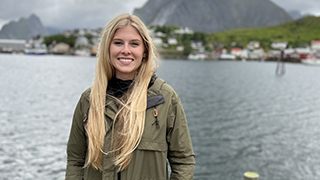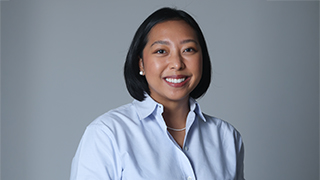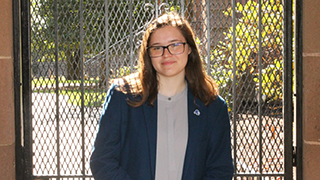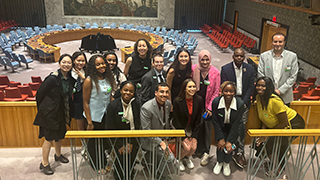The Rewards and Challenges of a Career in Journalism
Thursday, July 15, 2021
On May 28th, Stephanie Fillion, a veteran journalist who covers the United Nations, spoke at an event hosted by The Diplomatic Envoy, The Global Current and The Journal of Diplomacy. Fillion, who is also a podcast host with years of experience in international journalism, described the progression of her career and shared her perspective on the challenges journalism faces today. After the event, The Diplomatic Envoy's Jasmine DeLeon interviewed Fillion about her career and advice for students interested in the field.
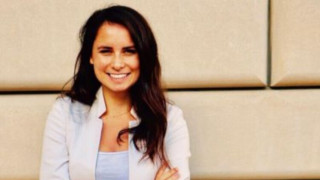
Journalist Stephanie Fillion spoke to Seton Hall students recently about her work covering the UN.
Stephanie Fillion is from a small town in Quebec, Canada, where the seeds of her journalism experience were planted.
She completed a three-year journalism program through the Cégep system because the program combined her interests in writing and traveling. Afterwards, she continued her studies through higher education.
Fillion studied political science, history, and Italian at McGill University. Subsequently, she was accepted to Columbia Journalism School, which she called "a dream come true," earning master's in journalism, politics and global affairs.
"Having a masters makes a difference in getting into certain rooms," Fillion told students during the Seton Hall sponsored virtual event. "A master's in journalism and the skills it gives you helps you to the next step as a journalist that you would not do as a breaking news reporter."
However, Fillion noted that many Columbia students think that their degree will open every door, but there is still a struggle. She emphasized that this is especially true for international students because American companies are more reluctant to hire them.
After graduating from Columbia, Fillion worked for Pass Blue, a nonprofit publication that covers the UN. She said that it was important to establish relationships with different media outlets to build a large network.
While working at Pass Blue, Fillion also started her own podcast: UN-Scripted. "Podcasting is an interesting medium because you can approach it documentary style where [projecting] images on a TV can be time-consuming," Fillion said. She added that she would recommend podcasting for those who would like to get more journalism experience.
Fillion encouraged Diplomacy students to learn other languages and emphasized the importance of cultural fluency in the fields of international relations and journalism.
"At the UN, knowing two languages is very basic," Fillion, who studied Italian, noted. "If I had the time and the courage to study certain languages, I would learn Chinese, Arabic, or Russian."
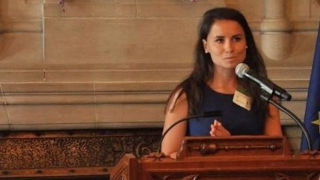
Fillion spoke about how the challenges and difficulties journalist face as they adapt to a fast-changing world. She said that the "million-dollar question" the world is trying to solve is how journalism can adapt and take advantage of the rise of social media and digital communications. "The internet has an effect to empower all kinds of speeches and perspectives," Fillion said. "In the discourse about fake news, a lot of people do not realize that there are processes and rules in journalism, and journalists cannot just write whatever they want." Fillion advises students using social media to be careful and understand that there are consequences for what they post.
Based on Fillion's experience as a UN reporter, she believes that given limited resources, there is also more room for quality journalism, particularly more investigative and in-depth work, at the UN.
"The UN is such a gigantic organization that I think more news organizations could give resources to it," Fillion said. "The main job of journalists is to keep people accountable. From what I've witnessed in my work, journalists have only been able to scratch the surface."
Fillion admits that the field of journalism is "a difficult one and people need to be passionate and work hard to succeed." At the event, Fillion said that "it can take a little bit for you to get published and it can take a little bit before you have your break, but it is a fascinating profession where you meet extraordinary people every day and sometimes it is worth waiting and building your name."
Fillion reflected on the many stories she has covered in her career. She said that it is hard to pick a single story because "as a journalist every person you meet helps you grow and learn something new." "I've interviewed presidents and everyday people and it is equal to me because everyone has faced challenges in their life," Fillion said. "It is about listening and trying to make the best of that story - and telling other people that story."
Categories: Nation and World


